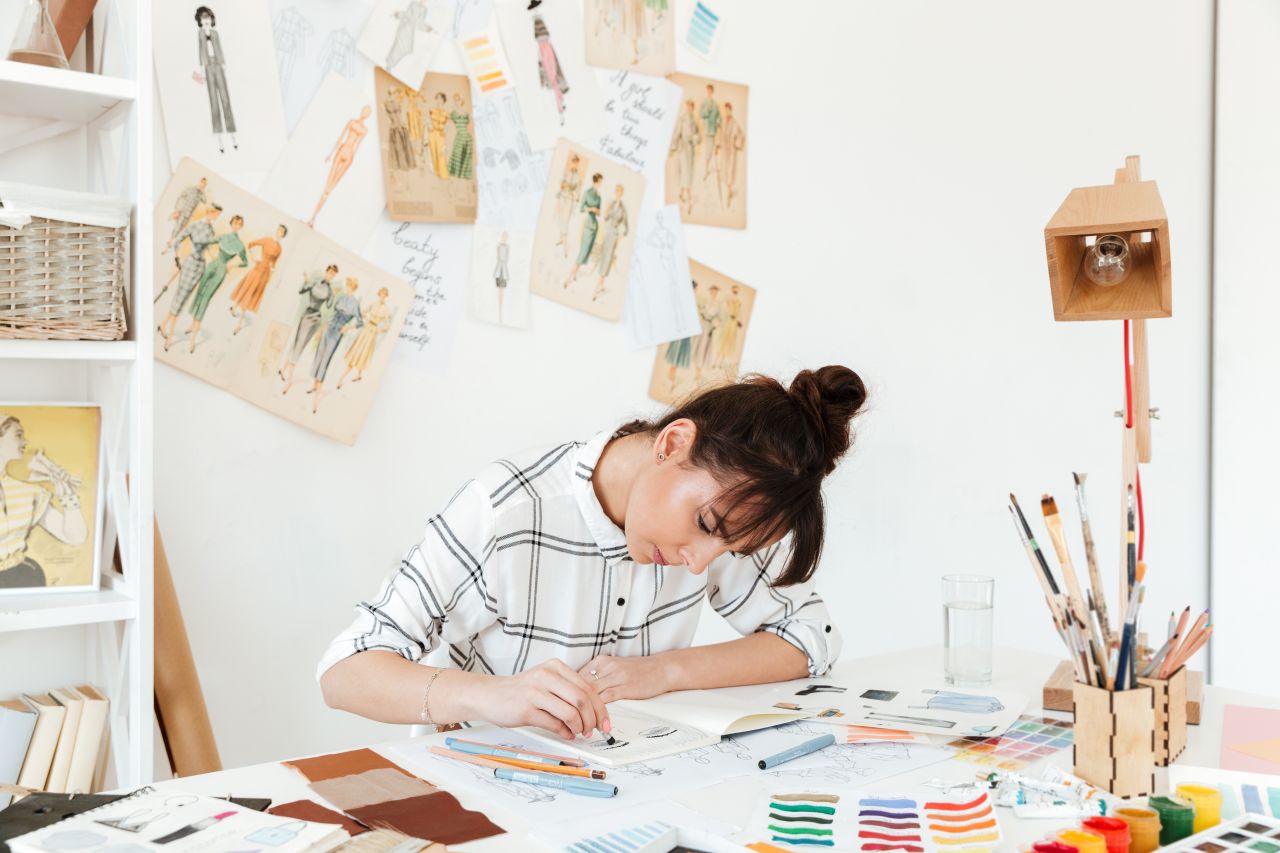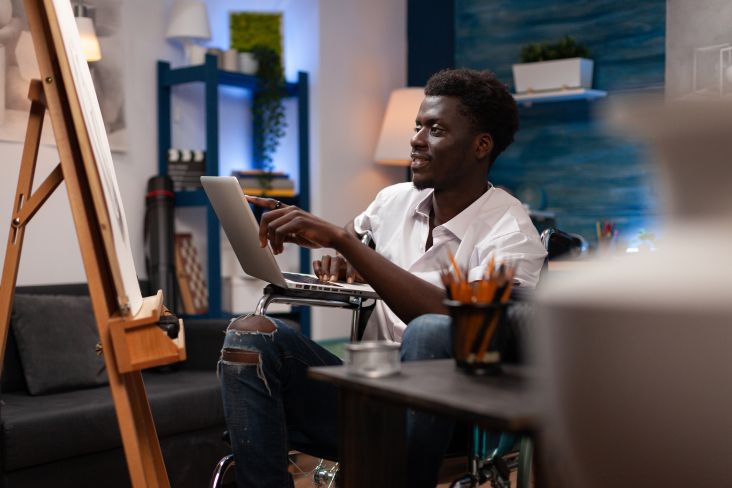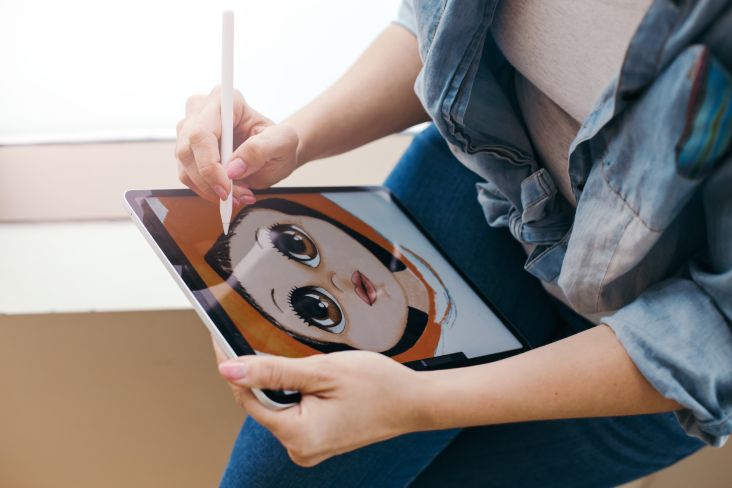10 things you should know before going freelance
Want to ditch the nine to five, and start your own business but worried about doing so? Is the fear of the unknown holding you back?

Image licensed via Adobe Stock
Becoming a freelancer is undoubtedly challenging, but it's hugely rewarding once you get going. Yes, you'll have to work hard and make a few sacrifices. It's not going to be easy.
If you're sat on the fence and don't know whether to go freelance, here are ten things you should know before you make any decision.
1. Starting is easier than you think
Starting a new business is pretty straight-forward, especially if you set up as a 'sole trader'. You inform the Inland Revenue for tax and National Insurance purposes and register as self-employed. It's as simple as that. Here's an easy checklist to help you become a 'sole trader'. Have you?:
- Registered as self-employed with HM Revenue & Customs?
- Found out from your local authority if you need to pay business rates or obtain any permits/planning permission that you might need to work from home?
- Registered for VAT if you expect to have a turnover of more than £83,000 a year? (As of 1st April 2016)
- Set up a record-keeping system for all your invoices, purchase orders, etc.?
- Ensured that your name is on all of your business stationery, including all letters, receipts, cheques and invoices?
And that's pretty much how you get started. It's not that difficult. But you have to cover these bases before you can call yourself a sole trader.
2. You don't need a business loan
Starting a business isn't expensive, and you don't need to write to your local bank manager to request a loan. Set up your computer on a desk at home and get started. Figure out what your company is going to be called and design your logo. Use Graphic River to purchase a readymade logo if you don't have design skills.
Then set up a website through an affordable platform like Squarespace. It's as simple as that.
When you can afford to, hire a proper graphic designer to improve your branding. But when you're just starting, keep costs to an absolute minimum and don't assume you need everything sorted right away, because you don't.
For example, when I first launched my business back in August 2007, I designed my branding even though I'm not a designer. What I created was appalling, that's for sure – but it didn't put off any clients that I won at the time. I also created a simple website, using a free blogging platform and designed and printed my range of stationery. I recommend you do the same. It makes no sense to fork out lots of money on things you don't need.
3. You don't need expensive office space
Most clients don't care if you work from home as long as you provide a reliable and quality service. But business can be about image and some people might not take you seriously unless you have your own office. Therefore make the best use of virtual office space providers or consider joining a co-working space.
Ok, so you're telling a bit of a white lie, but it does no harm. If a client directly asks where you work, be honest! Hopefully, you'll have won them over by then, and where you work will no longer be an issue.
Just bear in mind, if you are working from home, you may still need to pay business rates or even seek planning permission, depending on your business needs. Check with your local authority.
4. There will be droughts
Freelancing doesn't bring a regular salary. There can be long periods when work dries up, and you have nothing to do. To prepare for moments like these, always have a buffer zone in terms of savings. Try to have enough to cover three months' worth of outgoings.
And when you're suffering from a quiet period, use your time wisely. Work hard on your marketing to attract new clients. Get out and network as much as possible and stay positive. The work is there – it's just a case of being pro-active.
5. Beware of the roller coaster cycle
When freelancing, there'll inevitably be very productive, high-earning periods. Those amazing times when you're making lots of money and enjoying a healthy bank balance. But before you go out and splash the cash, be aware that the good times won't last. Because every freelancer is continuously on a roller coaster cycle of ups and downs.
There will be quiet months, and there will be months when you're working all hours of every day. Just remember that any money you earn one month might not be the same the next. So get used to saving for a rainy day.
6. Clients won't pay on time
It's a sad part of freelancing, but you have to expect that most clients won't pay on time. So make sure you have contingencies in place.
On all invoices, add payment terms – the standard being 30 days. Remember, you're within your rights to start charging interest on any late payments. There are laws to protect you, and you're entitled to enforce them. Read this article to help you calculate interest, when necessary.
On larger projects, I'd advise requesting deposits upfront and 'payment stages' or a payment schedule. It reduces the risk of not getting paid and helps to fund the project as you go along.
7. You don't need a significant portfolio to start out
If you don't think you're good enough to go freelance because you haven't got a decent portfolio or your CV isn't up to scratch, think again! Just spend time building up your portfolio or CV by getting as much experience as possible, whenever you can.
Most importantly, remember this – you have skills and people will always want to pay for them. Have confidence and use your first year to get to grips with running a business, building up contacts and experience.
If you don't believe in your skills and abilities, no one else will. But if you still feel under-prepared, consider taking an evening course or train yourself up to learn new skills because the freelancer that's always striving to improve is more likely to succeed.
8. Some clients will try to take advantage
Some clients could prove difficult. If you're prepared for anything that might go wrong, you'll avoid the common client pitfalls. First and foremost, I'd advise getting everything in writing whenever you're quoting for projects because this is often the most likely problem you'll encounter – that is, clients trying to get more for their money without paying extra. So before any project, write down precisely what you'll be delivering and make it clear what the client will and won't be getting.
It's also a good idea to learn the warning signs of potential stressful clients. You can read this helpful article on how to spot them before it's too late.
9. You'll miss the safety of being employed
It's no secret that freelancing is a challenge. And you will find yourself missing the safety and comfort of a full-time job. On those difficult days when you're dreaming about a regular salary, the company of co-workers and the reassurance that your job will still be there on Monday morning, think about this – no job is ever secure!
Freelancing is tough, yes, but it brings a wealth of benefits. When everyone else is beginning the long commute to work on a cold Monday morning, you could still be tucked up in bed or snuggled by your radiator in your cosy home office. When you're starting a family, you can fit work more easily around family life.
Plus, when everyone else is getting a regular salary – you're enjoying a much higher earning capacity. And when you work incredibly hard, you're not lining someone else's pockets; you're lining your own. And if you do go freelance, you'll do everything in your power to never go back to full-time employment, ever again. Trust me; freelancing is the best.
10. Freelancing is fun and hugely rewarding
Yes, freelancing is hard work. And yes there are times when you're pulling your hair out. But overall, freelancing is lots of fun, hugely rewarding and different every day. It not only brings freedom, but it also boosts your earning potential.
You can also work your hours and choose the way you want to operate. You can take weekdays off and work weekends instead if that suits. Nothing beats freelancing, and for many of you, you'll never go back once you've caught the freelancing bug. So what are you waiting for? Nothing is stopping you except yourself.




 by Tüpokompanii](https://www.creativeboom.com/upload/articles/58/58684538770fb5b428dc1882f7a732f153500153_732.jpg)


 using <a href="https://www.ohnotype.co/fonts/obviously" target="_blank">Obviously</a> by Oh No Type Co., Art Director, Brand & Creative—Spotify](https://www.creativeboom.com/upload/articles/6e/6ed31eddc26fa563f213fc76d6993dab9231ffe4_732.jpg)
















